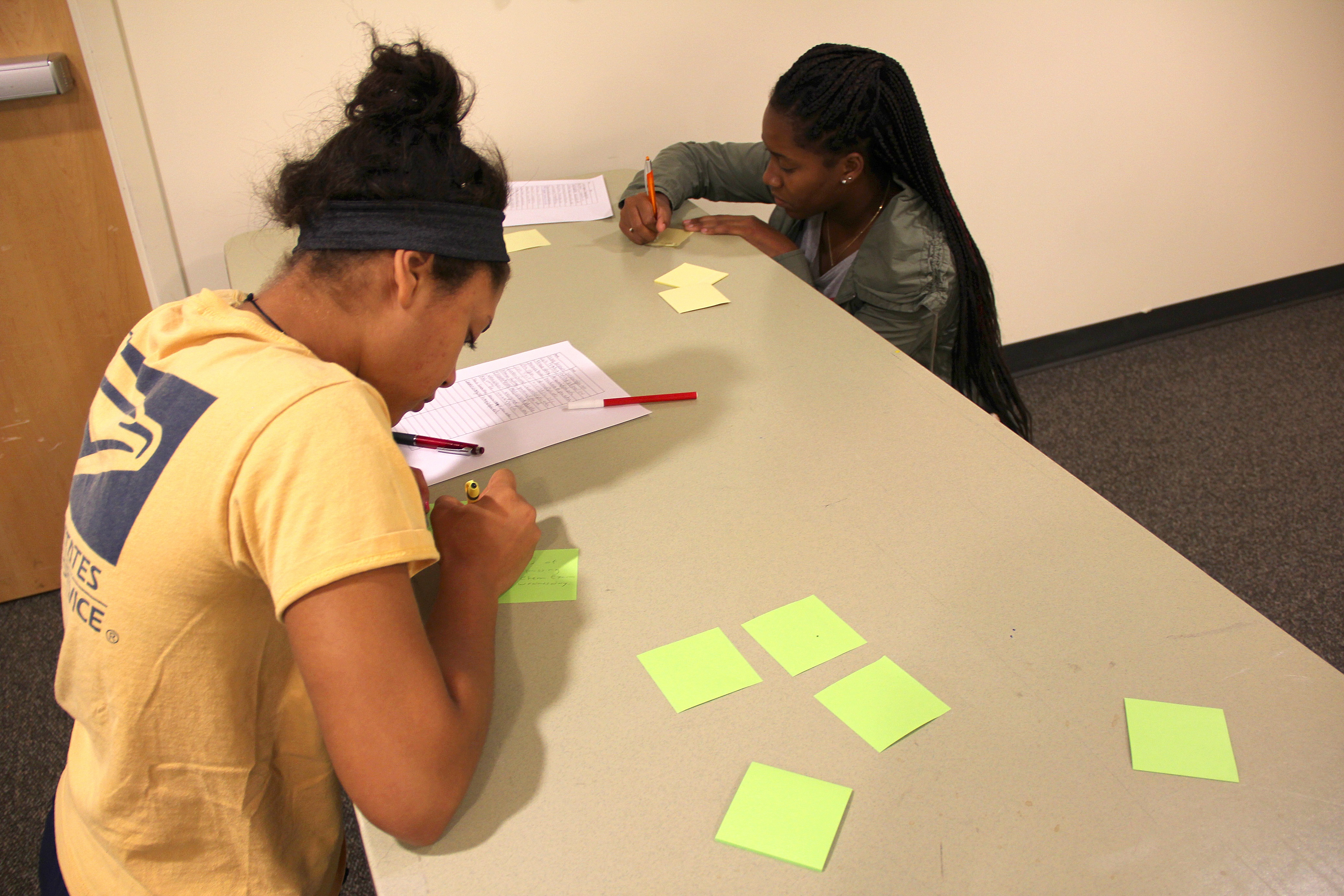
PHOTO BY MCKENNA MORIN
RIZELLE ROSALES; News Writer; rosalera@plu.edu
Editor’s note: Names in this story have been changed to respect the source’s anonymity.
Andrea Molina Rojas came to the United States as an undocumented immigrant at three years old. Now a sophomore Deferred Action for Childhood Arrivals (DACA) recipient at Pacific Lutheran University, Rojas dedicates herself to advocating for resources and support for undocumented students on campus through an anonymous student collective called the Gold Group.
Rojas learned at a young age to hide her immigration status, even from her closest friends. She explained that undocumented students often fall under the radar because of the legal issues and stigma surrounding immigration and the threats of detainment and deportation from Immigration and Customs Enforcement (ICE).
Since coming to PLU, Rojas has become an outspoken advocate for undocumented families and fellow students by being part of the Gold Group. “We know students need this,” Rojas said, “because it’s such a refreshing feeling, being able to talk about everything with no filter, no nothing. Just laying all out there, even just crying.”
The Gold Group was created in tandem with the Undocumented Task Force to ensure that the faculty on the task force gets consistent student input on resources and programming.
Rojas explained that this not only provides a space for students to meet in confidentiality and create a sense of community, but it also ensures that the task force is providing the right resources by having direct connection to the students themselves.
The two groups have collaborated to create meaningful campaigns and initiatives to benefit students on campus as well as the community over the past year.
Last year, the task force organized a campus faculty training through the University of Washington’s Leadership Without Borders program in order to familiarize faculty with the financial, social and psychological challenges that face undocumented students, along with best practices to support these students.
The financial challenges for undocumented students stretch beyond tuition and books. DACA recipients pay a $495 fee out-of-pocket every two years to renew their paperwork, and it cannot be waived. To study away, it requires a $700 fee to organize authorization. Beyond paperwork fees, the cost of legal representation if a family member is detained is variable.
The PLU4US campaign launched by the task force played a large role in supporting undocumented students through these financial obstacles. The group was able to raise $30,000 in scholarship funds. “It was incredible,” Rojas said, “and really helpful for me and other students in the group to see faculty and staff were supporting us to the point where they wanted to raise thousands of dollars to help.”
Not only do undocumented students face challenges on a local scale, but they are faced with threats on a national scale as well. Since June, Congress has passed the Anti-Border Corruption Reauthorization Act and the No Sanctuary for Criminals Act, which have collectively expanded the government’s ability to detain individuals, restricted the ability of localities to decline detainer requests from ICE and strengthened deportation forces by fast-tracking the Customs Border Protection hiring process.
Despite the passing of anti-immigrant initiatives, there are several pro-immigrant pieces of legislation that have been introduced to Congress, including the Recognizing America’s Children (RAC) Act and the Bar Removal of Individuals Who Dream of Growing Our Economy (BRIDGE) Act.
The BRIDGE Act has been introduced with bipartisan support. Though it does not provide a pathway to citizenship, it does allow DACA recipients to apply for “provisional protected presence” and renewable work authorization for a three-year period.
The RAC Act, introduced by Rep. Carlos Curbelo, would grant conditional permanent legal status to immigrants who arrived before the age of 16 that are receiving education, serving in the military or working with existing work authorization. If those requirements stay intact, the conditional status would become permanent after five years.
This year, the Gold Group is focusing on growing its membership, and reaching out to undocumented students on campus who could benefit from the funds that were raised.
However, expanding further outreach for the group poses unique challenges. Because of the importance of keeping the members’ identities confidential, this prevents leaders in the Gold group from approaching students themselves or promoting the group on social media.
“If I post something that says ‘come join Gold Group,’ that puts me in a bad place because I’m me. I’m undocumented, and I’m part of this group,” said Rojas.
Information about the group is posted in the Diversity Center as well as the Undocumented Student Resources page online. Most involvement is generated by students’ willingness to seek out support and become involved. “There are students who choose not to be part of this group for many different reasons,” Assistant Director of the Diversity Center Nicole Juliano explained. “With that, we try to make all resources available on the website so they can be accessible to all.”
Juliano is one of the several active faculty members on the Undocumented Task Force. Their future plans include a workshop in late October to further inform new students, faculty and staff on how to best support undocumented students on campus.
Though legislation may seem uncertain, Rojas refuses to be discouraged into complacency. Knowing that there is active support and solidarity at PLU fuels her confidence and hope for the future. “I’m not scared anymore,” she explained. “I’m not going to get scared when a big honcho man is telling us to get out. I’m not going anywhere.”


















